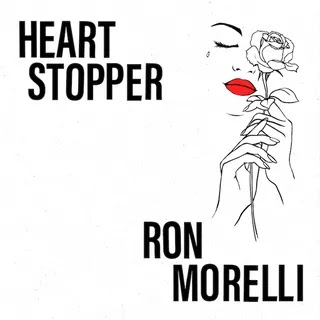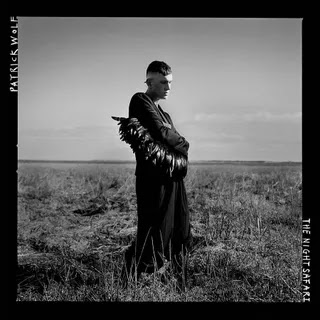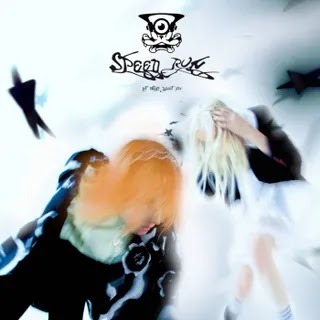Chaz Bear’s latest is a loose and lively psych-funk melange—the sound of a one-man band learning how to jam.
Although Toro y Moi surfaced as part of the slo-mo synth-pop movement lumped together as chillwave, the project’s sole member has always been an aspirational avatar for indie rock’s huddled masses. South Carolina’s Chaz Bundick, who later changed his last name to Bear and relocated to the Bay Area, has sung with equal detachment about bullshit jobs, breakup sex, and meeting James Murphy (“at Coachella,” he deadpans). But more than the often-fragmentary lyrics, what feels most representative of whatever remains of the indie zeitgeist is Bear’s unshowy eclecticism: He can remember when he first bought Radiohead’s OK Computer, but he’s also a house producer and heavyweight hip-hop collaborator. In a quiet victory for slacker SoulSeek jockeys everywhere, his work for EDM juggernaut Flume scored Bear a Grammy nomination. But it sounds like he’s on the job nonstop—“Everything is time management,” he told an interviewer—and he has enough existential anxiety about the point of it all that a 2015 album was titled What For?.
Mahal, Toro y Moi’s seventh studio album and first for indie stalwart Dead Oceans, posits convincingly that what Bear does is also supposed to be—as he told the same interviewer—well, “fun.” The title, a Tagalog word that can mean “love” but also “expensive,” is apparently an intentional response to the question posed by What For?. Bear, whose father is Black and mother is Filipina, further gestures to his maternal heritage with a cover photo that shows him perched in a decked-out jeepney—a colorful minibus that has for decades been the predominant form of public transportation in the Philippines. From an opening engine rev, the vehicle is a spirit guide across the album, a loose and lively psych-funk melange that transports him through styles and time periods with ad-hoc gaudiness and unassuming joie de vivre. It’s an album filled with jubilant funk-star yawps, goofier and more open than his previous full-lengths, with an uncharacteristic amount of guests. Instead of What For?, Mahal seems to ask, “Why not?”
Mahal is as fastidiously layered as the rest of Toro y Moi’s style-shifting discography, but Bear leaves the edges rough, connecting the tracks with radio tuning noises and relishing in unvarnished instrumental expression. Wordless opener “The Medium” has a pleasantly baggy glam-rock stomp, smoothed out by Bear’s psych-soul keys, but it really takes off thanks to a gnarly lead guitar part by Unknown Mortal Orchestra’s Ruban Nielson. “Millennium” is more disco-splashed, with Bear singing about champagne and celebration, but the payoff is a wonderfully wobbly synth solo by fellow chillwave lifer Neon Indian’s Alan Palomo. When the tempos slow, the playing evokes a muggy summer atmosphere, like the sweltering blues-guitar frug on “Mississippi”—one of several Mahal tracks performed entirely by Bear. But the album also has plenty of variety: Saxophone and flute waft over the woozy space-lounge ballad “Goes by So Fast.”
Although lyrics are usually secondary with Toro y Moi, Bear has found an endearing way to blend cryptic social commentary with wry humor. The enjoyably musty clatter of “Magazine” boasts a lilting hook sung by electronic-pop futurist Salami Rose Joe Louis, and Bear’s verses hint at corporate offshoring and environmental degradation as well as the death of physical media, a theme that carries over to the barcode-stamped album artwork—but what jumps out most is when he sings, “No more drama, please, no more dramamine/Imma throw up it up all over all the seats.” On the light-hearted, Archie Bell & the Drells-by-way-of-the-Marvelettes curio “Postman,” the indie-rock superman goes to the U.S. Postal Service and leaves empty-handed except for bills; if you can’t muster a stupid smile when Bear goes, “She forgot to put it in the mailbox…/What the fox?,” I don’t how to help you.
Because Bear has been so reticent about his personal life in his lyrics, the fleeting moments when he seems to allow glimmers through are sneakily thrilling. On “Last Year,” waltzing jazz-pop that lands somewhere between the Sea and Cake and Belle and Sebastian, he indirectly addresses the malaise that so many have experienced during the global pandemic. In an allusion to therapy, he sings, “I learned to love myself last year/Breakthroughs in conversations/Session went well/Yeah, I kept my chill.” With the inclusive imagery of “Déjà Vu,” a sauntering noise-rock anthem befitting Yo La Tengo or Stephen Malkmus, he nods toward a multi-faceted vision of America so casually that you might miss it. Musically, the record often sounds like a one-man band learning how to jam; lyrically, although still oblique, it feels like an introspective artist rediscovering the importance of community.
If nothing else, Mahal is a reminder that keeping time is better than relentlessly managing it. Bear has hopped between genres since his earliest singles, and he has already corralled his disparate influences into fully realized statements like 2013’s expansive Anything in Return and 2011’s taut Underneath the Pine. On paper, the Toro y Moi album that Mahal most resembles is the guitar-oriented What For?, but this time Bear sounds confident enough to relax. “Hustles got you losing touch,” Bear warns on the sweeping finale “Days in Love.” Less hustle, more flow.



%20Music%20Album%20Reviews.webp)












0 comments:
Post a Comment